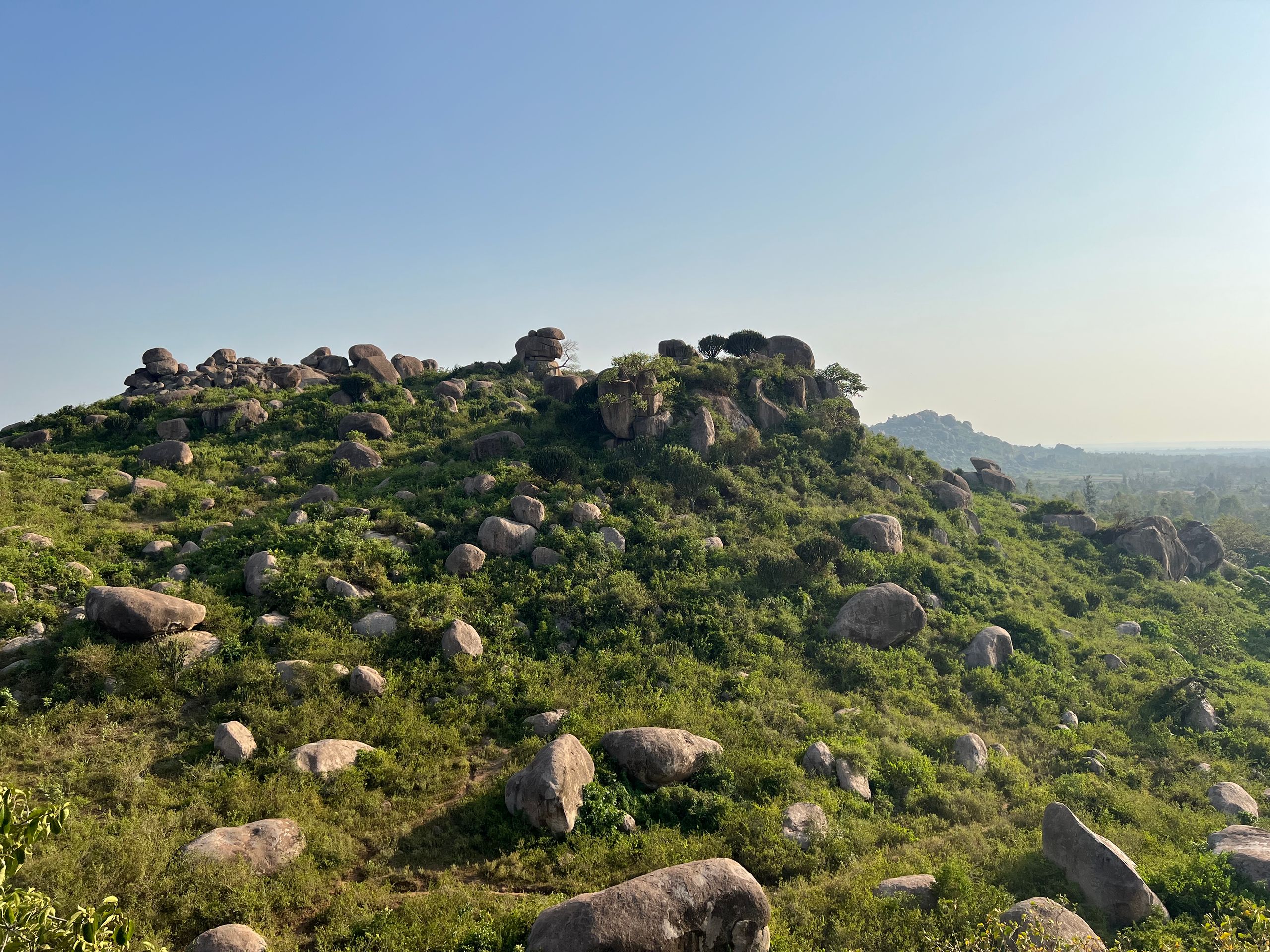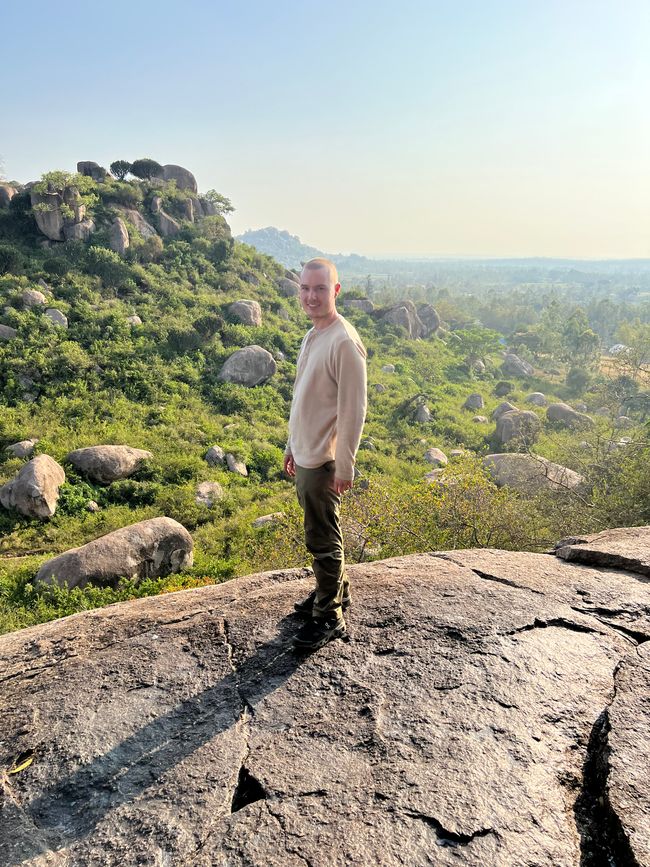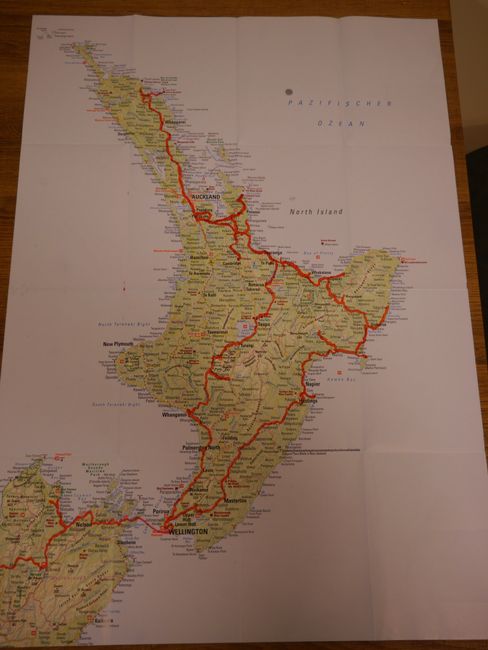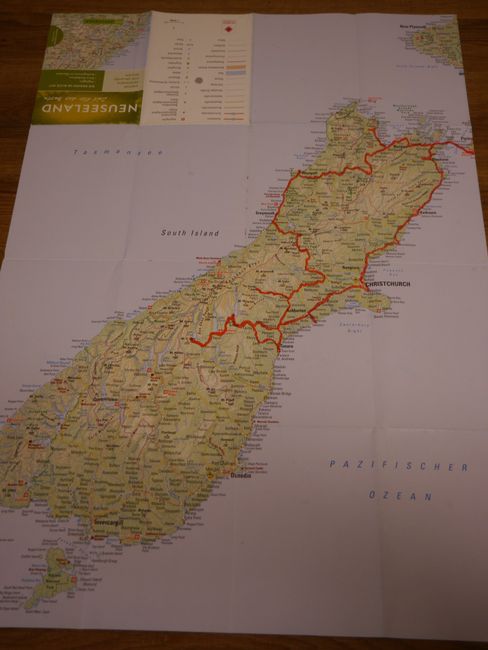Everything has an end, only our journey has two
ਪ੍ਰਕਾਸ਼ਿਤ: 03.01.2019
ਨਿਊਜ਼ਲੈਟਰ ਦੀ ਗਾਹਕੀ ਲਓ
Day 91
These were incredible months. I don't think you can experience much more in this time. And now it's time to say goodbye again.
Exactly three months ago today, we set off and in three months from now, we will return. Halfway. Half of our journey is over. In three days, we will already be in Buenos Aires. And so the journey ends, and it begins again in a way. Time for an intermediate summary.
A quarter of a year ago, we sat at the airport in Hamburg and couldn't believe that it was finally starting. We simply couldn't believe and even less imagine that we would be living on the other side of the world for the next six months. Of course, we were aware of that and it was clear that we would get on the plane and only get off in six months, but still, the thought was just incredibly weird. When we were flying ten thousand meters above the earth towards the east, we wondered how long it would still feel so unbelievably strange to us. And in the first few days in Auckland, not much changed. It still didn't sink in. As always in life, at some point, it did and soon it became the most normal and logical thing in the world for us to be away for a while. Now it's January third. In three days, everything will take a completely different turn and I will start to think again how crazy what we are doing here is. We simply have no plan for how the journey will continue in South America and it just sounds absurd to say that after three months in New Zealand, we will fly back to Argentina. Maybe it is.
In the first weeks in New Zealand, we always wondered if we would change somehow during the journey or how we would look back on the early days. Well, how do I look back on the first few weeks? I realize that in the beginning, we just did things without knowing where it would all lead. There was certainly a certain underlying tension with all the things we had to do, but that gradually decreased. And whether I have changed, well, that's always hard to say for yourself. What I do know, though, is that I have learned an enormous amount of things. And that inevitably changes you in one way or another. Where should I start? I have learned how exhausting it can be to buy a car, and how easy it can be to sell it again with a bit of luck. How to open a bank account or take out insurance. How exhausting it is to suddenly have to take care of things that were taken for granted. Washing your dishes every day in a public toilet, doing your laundry, making sure you have something on your plate in the evening, going shopping and cooking. Keeping an eye on your finances. Not despairing when the 26-year-old car causes problems again and you have to go to a workshop. I have learned how laborious all of this can be. And how fulfilling it is when you can lean back proudly afterwards. I have also met people, people who, like us, are traveling to see how the world here differs from ours. Not as much as we thought. How nice some people can be, how open and curious. How hard some work in this world is, and how valuable it is not to depend on such work.
But what I have mainly learned is to approach people. To talk to them and ask for help when you need it because that has always worked for us. There are so many anecdotes we have experienced that confirm this, and sometimes they are just trivial things. For example, we were once at the beach at 26 degrees and bright sunshine and had forgotten our sunscreen, which is very important in New Zealand because of the thin ozone layer. So we looked for the first person on the beach and asked if we could borrow some sunscreen. In this case, we asked a Spanish woman who is on vacation in New Zealand and not only agreed to let us use her entire sunscreen package because it's so hot and she still has one in the car anyway, but we also had a short conversation about Spain and Argentina, which was very nice. And there are countless other examples. In one of my first entries, I told a story about a man who late at night removed our car's taillights because they wouldn't turn off. On another day, a nice woman gave us a ride in her car and even took a detour for us with heavy luggage, even if her children didn't like it so much. Or we asked a man on the street for the nearest workshop, and he accompanied us there, showing us not only the way but also the town. It's simply about asking and starting a conversation. It often brings more than you think.
And I have also realized something for myself. Namely, that it really doesn't bring anything, but really nothing, to whine about. If you have a problem that needs to be solved, it won't work with desperate groaning and staring into space. It's just a waste of time. And even though I was always someone who did exactly that in such moments, I now know that it can quickly go from a low point to a high point. And now it sounds like something from a pseudo feel-good calendar from Tedi. But maybe these feel-good calendars are actually quite wise. Because it's true.
And apart from how much we have learned so far, we have also seen a lot. The most beautiful landscapes and the ugliest cities. The North Island, the South Island. Hidden bays, dream beaches, snow-covered mountain passes, one of the ten most beautiful coastal roads in the world, where you drive between the jungle on the left and the ocean on the right, seals, parrots, a whale, various "Lord of the Rings" locations, countless national parks, countless palm trees, green meadows, sheep, a whole bunch of public toilets, all kinds of campsites, transparent and turquoise river water, New Zealand's Lake Garda, and much, much more.
And besides the things we have learned and seen, we have also experienced New Zealand, the country itself, and have noticed how it ticks. The New Zealanders, who are on the one hand so laid-back and enjoy life, are on the other hand also sometimes incredibly precise, if not to say uptight. Every smallest pothole on the highways immediately turns into a hundred-meter-long construction site, where everything is cordoned off and five orange men stand, who in their suddenly too casual way ensure that the road becomes passable again at some point. Or on New Year's Eve in the center of Auckland, on an intersection flooded by celebrating crowds, which completely paralyzes traffic, a police officer points out that you have to pour out your beer because the entire city is a "No Alcohol Area". But as soon as you have done that, the same police officer says "I'm sorry bro", looking at you with sympathy.
Speaking of alcohol, there was also the case when Linus and I bought beer in a supermarket. I went to the checkout to pay but had to show my passport. I had to run back to the car to get it. But when I returned, the cashier also wanted to see Linus' passport since we were buying the beer together. He had to run as well. The Kiwis, in general, are very sensitive to regulations and bureaucracy, almost worse than us Germans. Who would have thought. At a beach we visited, there was perfectly calm water and hundreds of people bathing there carefree. But typical New Zealand, there were two obligatory poles, about 50 meters apart, with a sign hanging on them saying "Please swim just between these flags". The water looked the same to the right and left of the poles, and just as many people were bathing there, but it could somehow be dangerous, so it's better to set up these unaesthetic poles that nobody pays attention to anyway. Correspondingly, there is also the organization at self-contained campsites, where a color-marked area is always marked where you can park your van. It's a bit ridiculous when the parking lot is huge and only ten vans are packed closely together in the middle of that area because otherwise, they risk a $200 fine from the council, which, as we were told, comes by up to five times a night to check if the rules are being followed.
Yes, we have experienced all these exciting and sometimes funny peculiarities of the New Zealanders in our three months in this wonderful country. It's just a guess, but I could imagine that these things will be completely different in South America. And I think everything will be completely different anyway. At the beginning, Linus always talked about a culture shock that will happen to us. That sounded so negative to me, but I'm sure everything will really change. To what extent we will see.
It doesn't matter what happens now, what else comes is just extra because no one can take away what we have done so far.
And when I scroll through the phone pictures, I see again and again how many memories remain in this relatively short time, so it's not easy to summarize all of this in a conclusion. But I tried now.
Looking back again, that we flew exactly three months ago today, I think it can't be possible that the first half has already been reached so quickly. At the same time, when I think about individual experiences during this time that already feel very distant, I realize that it's just as incredible that the other half is only just beginning. And the first part is now over. New Zealand goes from an experience to a memory. It's time to say goodbye, we're moving on.
These were incredible months.
ਨਿਊਜ਼ਲੈਟਰ ਦੀ ਗਾਹਕੀ ਲਓ
ਜਵਾਬ (1)
Holger
Danke für die zahlreichen Berichte und viele Erlebnisse und viel Freude im Land der weiß-himmelblau trikotierten Kicker.
ਯਾਤਰਾ ਰਿਪੋਰਟਾਂ ਨਿਊਜ਼ੀਲੈਂਡ



